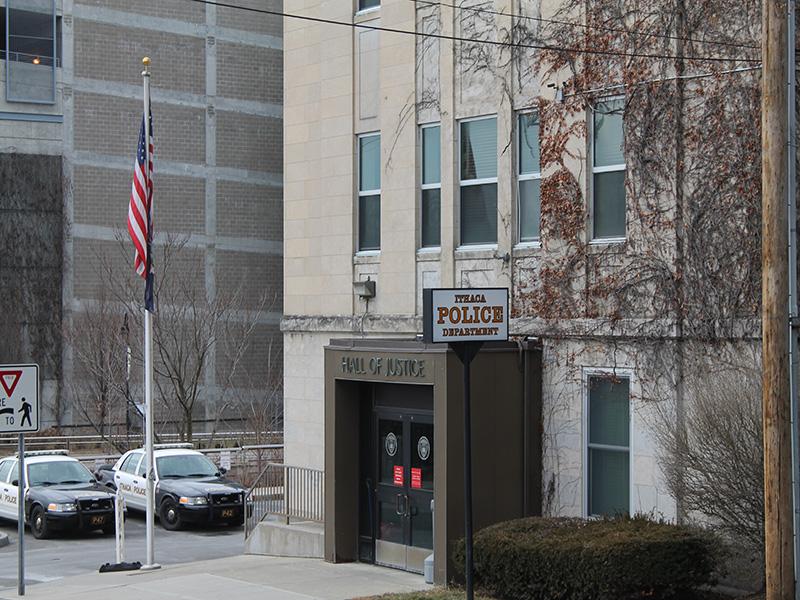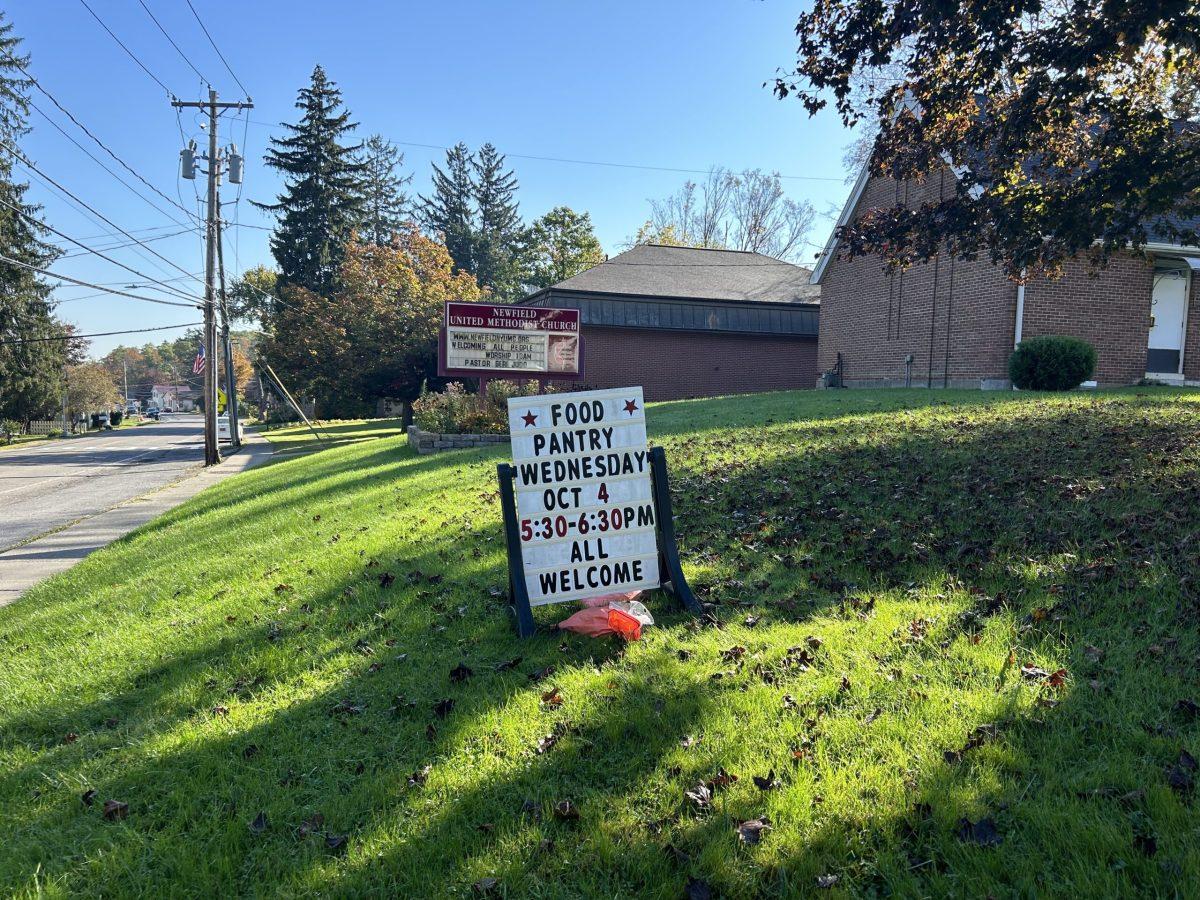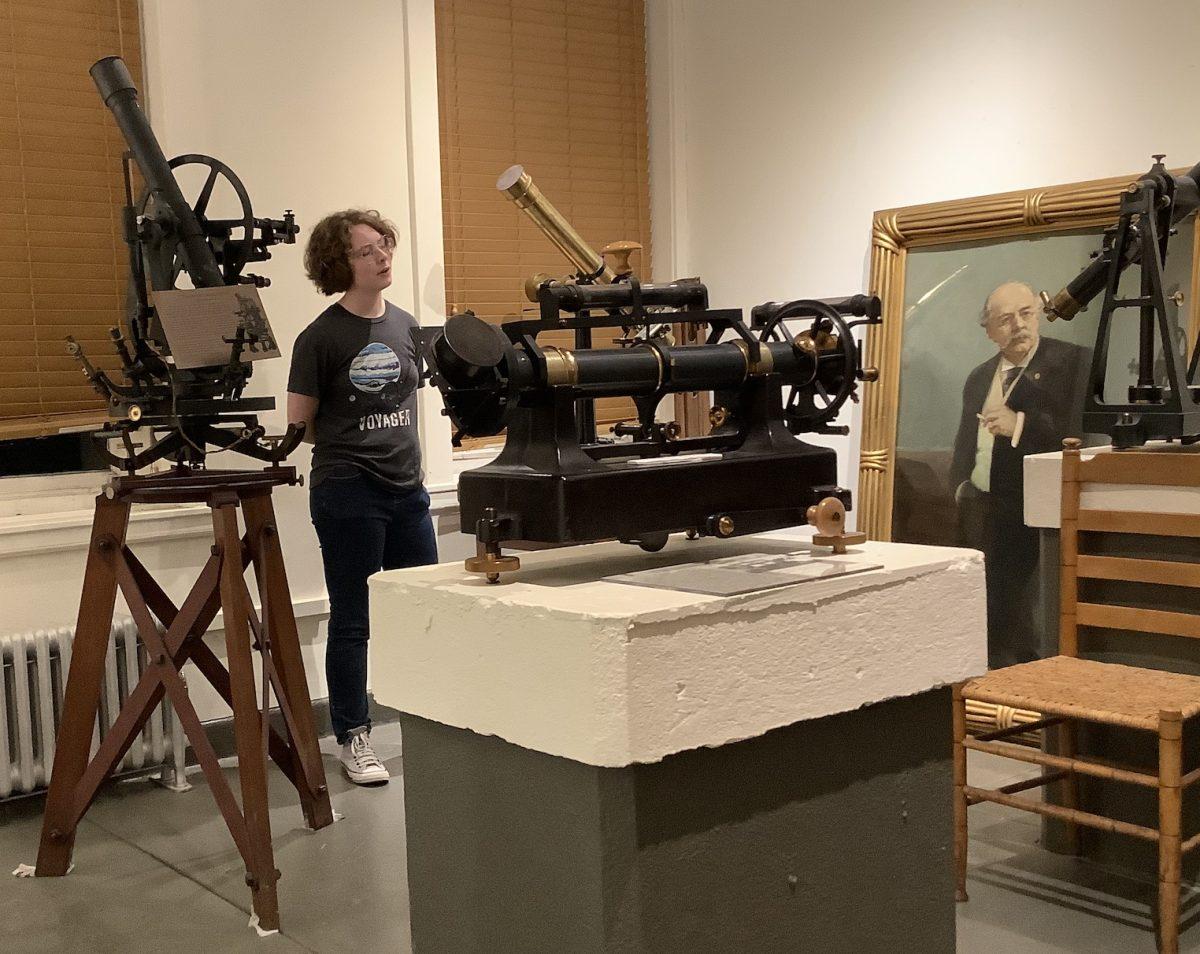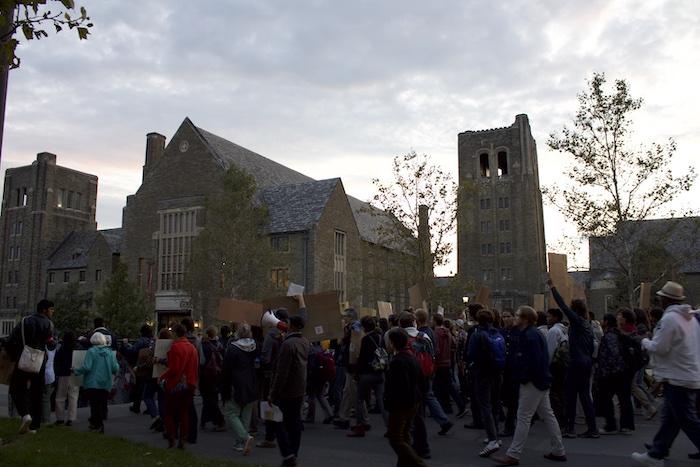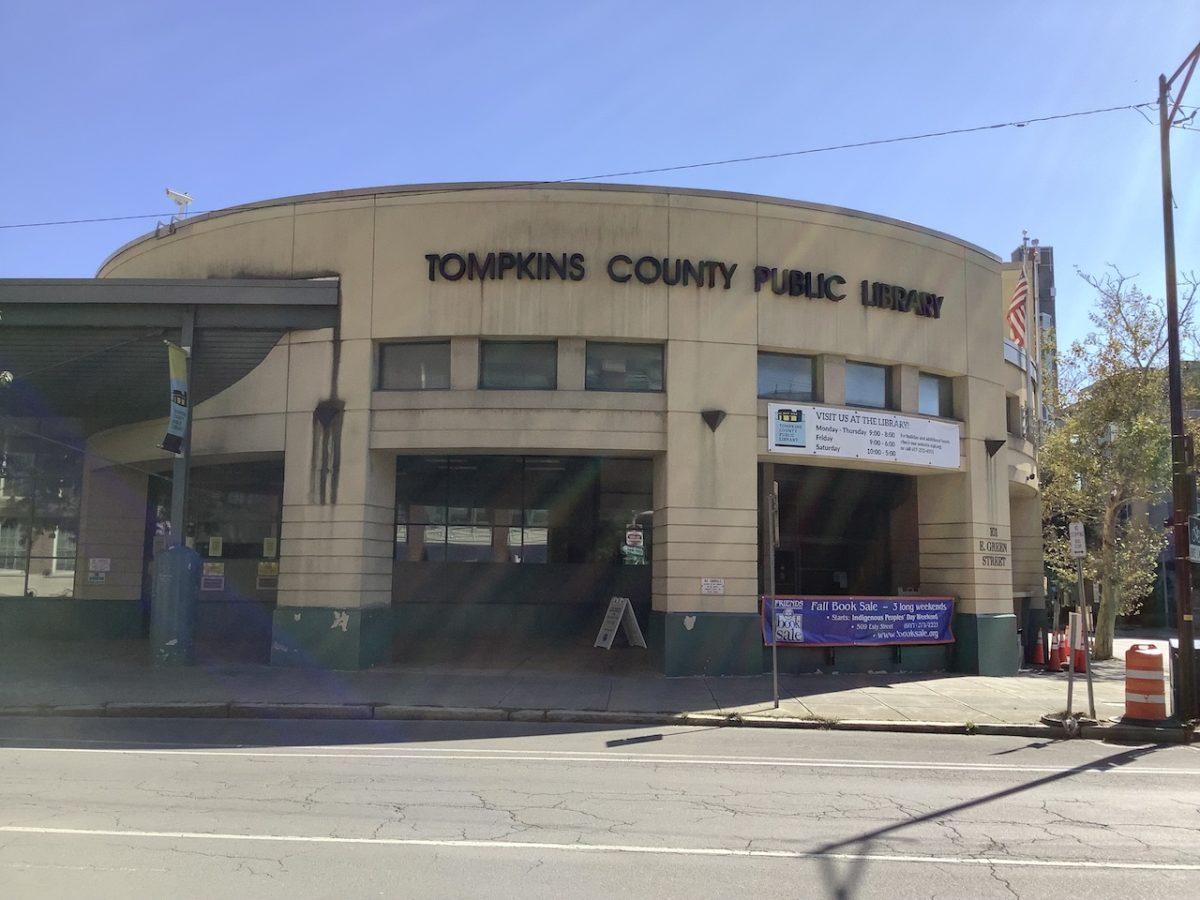Lisa Stevens, an Ithaca local and employee at Loaves and Fishes, has seen people fight with heroin addiction too many times, and now she plans to enroll at Tompkins Cortland Community College to earn a degree in drug counseling. As she does her part in addressing the epidemic, she believes her community could be doing its part with Ithaca Mayor Svante Myrick’s proposed heroin injection facility.
“I don’t know the details totally, but I know that what’s in place now is not helping our addicts,” she said. “I just see a revolving jail door, that’s all I ever see. So I’m almost willing to try anything at this point.”
Ithaca mayor Svante Myrick’s proposed opening of a supervised heroin injection facility Myrick’s proposal has led to heated debate in the community and around the nation, as this clinic would be the first of its kind in the United States. The Drug Policy Alliance has released a statement supporting Myrick’s proposal.
The facility would be modeled after similar clinics in Vancouver and parts of Europe. These clinics have dramatically reduced death rates, the spread of disease, and improper disposal of syringes. The clinics are not dispensaries and do not provide heroin for addicts. Professionals on site help monitor the dosage and help prevent any accidents or fatalities. Users would also be given information about rehabilitation.
Myrick said the criminal justice system is ineffective in responding to the drug crisis in the United States and has asked the state health department to declare the heroin epidemic a health crisis in New York.
“It’s time for a new approach to drug policy — an approach that’s based in reason, logic, and effective results,” Myrick said in his 2015 State of the City announcement. “It’s time for an approach that treats the problem of drugs as a problem of public health.”
Opponents of such clinics say the centers serve as ‘enablers’ and feed addiction. Fred Richardson, volunteer firefighter and employee of Ithaca Renting Maintenance, said the only way to end the epidemic is rehabilitation.
“I like the idea that, yes, they can come here and … do it safely and also have rehab options, but are they really going to look for that rehab?” Richardson said. “They’re going to look for that safe haven to be able to shoot up no problem. And us taxpayers gotta pay for that. That doesn’t make sense.”
Myrick argues that heroin addicts need access to professional help in order to recover.
“If treatment is our goal, we have to keep people alive until we can get them the medicated treatment, the detox, rehab and counseling that they need to actually get healthy,” Myrick said in an interview with NPR program Here & Now. “If they’re shooting up in gas station bathrooms and on the streets or huddled behind dumpsters, they’re never going to get those resources because they’re never going to have access to medical professionals.”
William Metro, a magician with The Jack of All Trades Foundation, said he does not think the clinic is a good idea.
“It’s the dumbest idea I ever heard,” Metro said. “He’s just encouraging people just to shoot up, it’s so stupid.”
The proposal is not currently legal in the United States, which is why Myrick wants to bypass state legislature and have a health crisis declared.
Emily Parker, a graduate student at Cornell University studying policy analysis, said she was more supportive of the idea.
“I think it’s forward thinking and a different approach to a difficult problem that we can’t seem to solve in other ways,” she said.
The goal of the clinic, which is part of a comprehensive plan to fight drug addiction, is to provide addicts with a safe place to go when they need to shoot up but also a place where they can be provided with health and safety information and have a chance at rehabilitation.
“These solutions are also not progressive or conservative,” Myrick said during a March 4 press conference. “They just work.”

